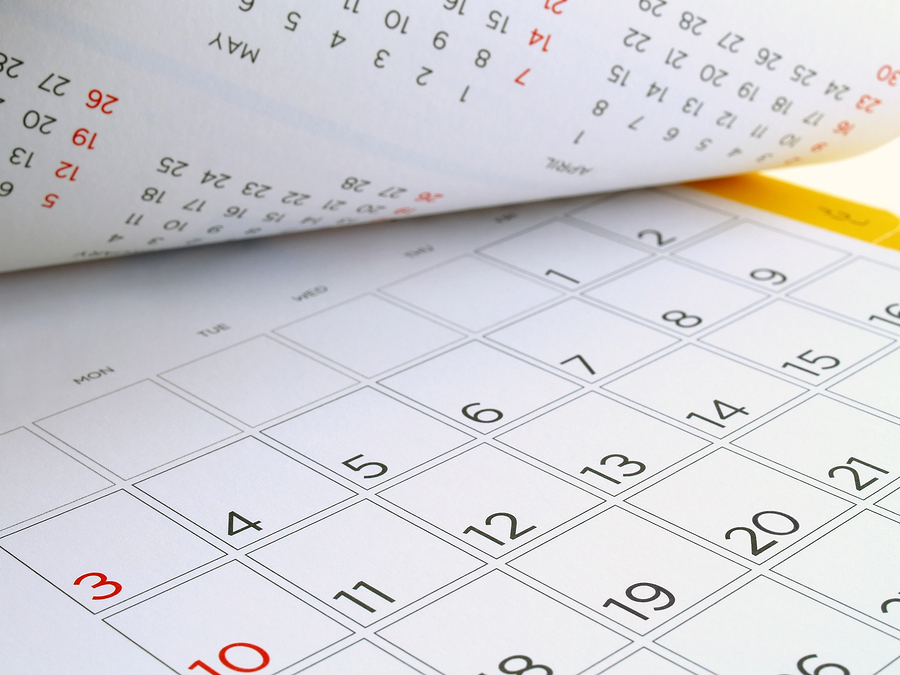Meetings make people less productive, study finds
Researchers showed that free time feels shorter when it comes directly before an appointment

How many times have you been sat in a meeting that could have easily been an email? Catching up face-to-face has its benefits, but the reliance on regular catch-ups and meetings can really interfere with your ability to get on with your day job.
Now, a study has confirmed that when we have meetings spread across a day, it messes with our productivity and actually makes us think we have less time in the day. Over the course of eight studies, both online and in real life, the researchers found that free time seems shorter to people when it comes before a task or appointment on their calendar.
"We seem to take a mental tax out of our time right before an appointment," said Selin Malkoc, co-author of the study and associate professor of marketing at The Ohio State University's Fisher College of Business. "We figure something might come up, we might need some extra time, even when there's no need to do that. As a result, we do less with the available time."
In one of the online studies, Malkoc and her colleagues asked 198 participants to imagine they had a friend coming over to visit in one hour, while others were told they had no plans for the evening. All participants were asked how many minutes "objectively" they could spend reading during the next hour and how many minutes they "subjectively" felt like they could spend reading during the same time.
"Regardless of whether they had a friend coming by or not, participants said they objectively had about 50 minutes available to read," Malkoc said. "That's an amazing finding right there. Most people didn't think even objectively they had a full hour to read. People are putting a little 'just-in-case' time into their schedules when there is no real reason to do that."
When asked how much time they felt they had to read - the subjective measurement - those who had a friend visiting felt that they had 10 more minutes missing in their hour, dropping their free time down to 40 minutes.
These results were then echoed in real-life studies. The researchers asked the online participants to send their diary details for the following day and told them to detail how much time they would need before each task to prepare.
Get the ITPro daily newsletter
Sign up today and you will receive a free copy of our Future Focus 2025 report - the leading guidance on AI, cybersecurity and other IT challenges as per 700+ senior executives
Each of the participants was then offered the opportunity to take part in either a 30-minute or a 45-minute study on that day. The 30-minute study paid $2.50 and the 45-minute study paid $5. For some participants, the study was scheduled in one hour before they said they had to start getting ready for their next appointment. For others, their slots were not scheduled against other appointments. Even though they had enough time to finish the 45-minute study, participants who had an appointment an hour later were "significantly more likely than the others to choose the 30-minute study" over the 45-minute one.
"It was clear they would have plenty of time to finish and have extra time before their next appointment, but they still were more likely to choose the 30-minute study - even when there was a clear financial incentive to choose the longer study," Malkoc continued.
A follow-up study then found that people also seemingly get more done when they don't have a scheduled task hanging over their heads. The researchers told 158 college students that when they arrived at the lab, study sessions were running faster than expected.
Some participants were told they had about five minutes before they could get started and were given permission to do whatever they wanted before getting started. Others weren't reminded about their upcoming task and were simply told they had about five minutes to do whatever they wanted. After the time passed, all participants wrote down what they did during the interval, including sending texts, checking emails and scrolling through Twitter.
Those who weren't reminded they had an upcoming task performed more activities - an average of 2.38 - than those who were told they had a task soon - an average of 1.86. "You don't feel like you can get as much done when you have a task coming up soon. The time seems shorter," Malkoc explained. These findings suggest that looming tasks on our calendar make us less productive.
"We feel that if we have a meeting in two hours, we shouldn't work on any big projects. So we may spend time just answering emails or doing things that aren't as productive," Malkoc continued.
This could explain why, on days when we have meetings spread throughout, we feel like we haven't accomplished much because we're not maximising the time in between those meetings.
One solution, the researchers suggest, is to try to stack all your meetings together. "That way, you have longer, uninterrupted times when you feel you can tackle the bigger projects on your agenda."
The study is published in the Journal of Consumer Research.
-
 The Race Is On for Higher Ed to Adapt: Equity in Hyflex Learning
The Race Is On for Higher Ed to Adapt: Equity in Hyflex LearningBy ITPro
-
 Google faces 'first of its kind' class action for search ads overcharging in UK
Google faces 'first of its kind' class action for search ads overcharging in UKNews Google faces a "first of its kind" £5 billion lawsuit in the UK over accusations it has a monopoly in digital advertising that allows it to overcharge customers.
By Nicole Kobie
-
 'Digital hide-and-seek': Workers are wasting hundreds of hours a year sourcing the information they need to carry out their role
'Digital hide-and-seek': Workers are wasting hundreds of hours a year sourcing the information they need to carry out their roleNews Knowledge workers globally are wasting a quarter of their working week tracking down information, new research from Atlassian has revealed.
By George Fitzmaurice
-
 Untethered: How CIOs and CISOs are paving the way for the new hybrid workforce
Untethered: How CIOs and CISOs are paving the way for the new hybrid workforceWhitepaper Effective techniques to transition from exposed legacy infrastructure to an effective zero trust strategy
By ITPro
-
 Essential skills for managers: Develop resilient employees
Essential skills for managers: Develop resilient employeesWhitepaper Build team culture, no matter where your people are located
By ITPro
-
 2024 Global learning & skills trends report
2024 Global learning & skills trends reportWhitepaper Top trends for the future of work
By ITPro
-
 Reimagining leadership development for today’s workforce
Reimagining leadership development for today’s workforceWhitepaper Top trends for the future of work
By ITPro
-
 A leader’s guide to battling workforce burnout
A leader’s guide to battling workforce burnoutWhitepaper Prevent burnout among your employees
By ITPro
-
 The GenAI transformation: Perspectives on leadership
The GenAI transformation: Perspectives on leadershipWhitepaper Guide employees through a generative AI transformation
By ITPro
-
 The future of HR and talent in the age of generative AI
The future of HR and talent in the age of generative AIWebinar Transform your people management, support your workforce, and optimize your HR strategy
By ITPro